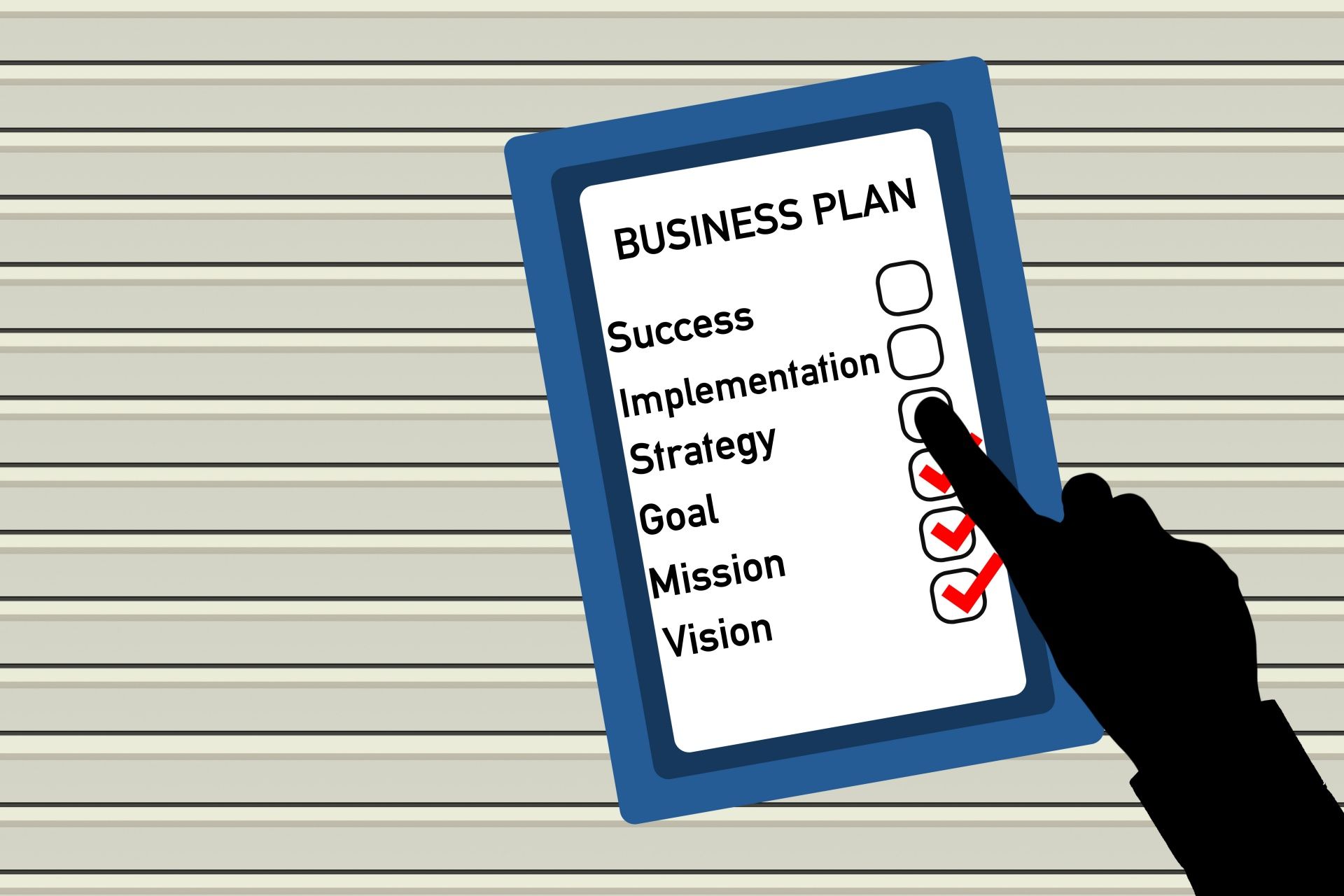
Source: Gerd Altmann via PublicDomainPictures.net
Do you think business plans are complex to write or a waste of time for entrepreneurs who aren’t actively fundraising? Think again! A business plan is helpful at different points in your journey, from exploring new ideas to adjusting the direction of an existing company. Whether you need to clarify your focus, communicate with others, or both, a business plan helps spur and crystallize thinking. While the task may seem daunting to the rookie entrepreneur, you can draft a business plan in as little as 15 to 30 minutes and complete the first version in as little as one hour. So, let us get ourselves in the right mindset.
The whys of a business plan
A business plan helps identify risks and pressure-tests your idea against market and financial realities. It can also surface opportunities and products or services to offer. A lucid business plan attracts investors, lenders, and business partners by conveying the potential for profit and return on investment (ROI). A business plan can help you determine financing needs and secure the funding. A thorough plan also documents the timing and use of funds. Read this Small Business Administration (SBA) article for additional reassurance that you can write a business plan that helps guide and propel your startup.
The structure of a business plan
While their format varies, most business plans cover the following areas:
1. Executive Summary:
of your core business idea, mission, product offering, market position, and organization. Use this summary to make a compelling first impression. Explain the problems your business solves, your target customers, and your approach. Highlight your competitive advantages or differentiators: what makes your business unique. You should also include a visual summarization of Strengths, Weaknesses, Opportunities, and Threats (SWOT).
2. Market Analysis:
Use this section to demonstrate an understanding of your industry, market size, and competitors. This section should convey your strategic approach for identifying and tackling niche(s) where you can realistically succeed.
3. Organization and Management:
Outline your business’s organizational chart with all relevant details. Depending on your profile, you may include data on ownership, management team, and the board of directors. Highlight how your team’s expertise and professional experience align with your startup’s goals.
4. Products or Services:
Describe your product and service offerings and the corresponding customer needs and wants. Cover the product life cycle, pricing model, research, and development considerations.
5 Marketing and Sales Strategy:
Detail your plan for customer acquisition and retention. What are your marketing strategy and sales tactics? How do you measure success?
6. Financial Projections and Funding Requests: Provide high-level financial goals and projections. Include specifics such as income statements, cash flow, and balance sheets – both past and projected. If you are fundraising, provide a pragmatic and detailed financial section. If you seek funding, explain the amounts you need, on what timeline, the projected use for the funds, and the type of funding you are seeking – loans, grants, or equity.
7. Additional Information: Include an Appendix with supporting artifacts such as resumes, portfolios, intellectual property (IP), permits, licenses, or legal documents. Consider including an FAQ.
For more guidance, templates, and examples to get you started quickly, see:
How to effectively use your business plan
First, having a business plan, even in its most basic, lean version, is a great start. Congratulations on overcoming your initial inhibitions and taking the plunge. Having a plan increases your credibility and improves your startup’s success odds of securing funding, surviving the past five years, and accelerating growth.
Once you have your first version of a plan, maintain and improve it. For example, you can avoid one of the most common pitfalls – unrealistic financial projection – by including explanations with your forecasts and asking for objective third-party review. Watch for common business plan mistakes and startup pitfalls to increase your business’s viability. Without the structure and rigor of a business plan, it would be hard to detect, let alone address, some of these issues.
Last but not least, take the occasional 15 minutes to update your plan. Treat each of the following events as an opportunity to hone your thinking with the practical help of a coherent, up-to-date, living business plan:
- Significant changes in your industry, supply chain, legal, or regulatory environment
- Company changes such as rapid growth, team composition, strategic decisions
- Competitor moves such as price changes, new product introductions, mergers, and acquisitions
Final thoughts
Writing an effective business plan doesn’t have to be hard or complex. Once you take the time to draft a first version, you will start reaping its benefits: clarifying your idea, attracting partners, and guiding your startup to success. As you process the document and make it part of your entrepreneurial plan, you will likely internalize Dwight D. Eisenhower’s saying, “Plans are nothing, but planning is everything.”
